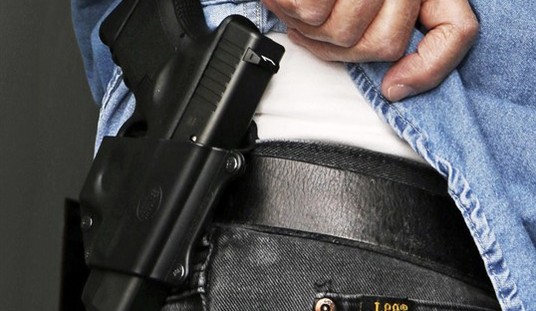First off, a huge tip of the hat and round of applause for Baltimore Banner reporter Dylan Segelbaum for an excellent job of reporting on the rhetoric from Baltimore State’s Attorney Ivan Bates and the reality of a case involving a West Virginia man arrested for illegally possessing a gun in the city. Far too many local media outlets in Baltimore take a dim view of the Second Amendment and the right to keep and bear arms that bleeds into their reporting, but Segelbaum played it straight in his coverage of the arrest of Sean Hanratty and the ultimate dismissal of his charges.
As Segelbaum reported, Bates is trying to claim that the dismissal of Hanratty’s case was an act of prosecutorial largesse and discretion; a characterization that both Hanratty and his public defender vociferously refute.
Prosecutors, he said, have to use their common sense. Bates went on to discuss a case that he said his office decided not to prosecute in which Baltimore Police charged a man from West Virginia who had legally purchased a handgun after law enforcement found the weapon in the trunk.“My common sense said, ‘OK. I understand this individual’s from a different state. I understand the law is different,’” Bates said during the televised town hall. “Do we really make sense to prosecute this individual that in West Virginia’s done everything proper?”But the court record reflects that’s not what happened. The Baltimore State’s Attorney’s Office was actually moving forward with the prosecution — and even asked for a postponement — and dropped the charges only after a judge excluded evidence in the case.“They tried to get me over and over,” said Sean Hanratty, 53, a senior network engineer from Falling Waters, West Virginia, who had been facing two counts including wearing, carrying or transporting a handgun without a permit. “That is a complete lie.”
Deputy District Public Defender Alycia Capozello, Hanratty’s attorney, asked a judge to throw out the charges or exclude the testimony of two witnesses.Capozello said the state failed to provide notice that it intended to call a police officer and a firearms examiner as expert witnesses, which must be done before trial under the rules in Maryland.“The state has a poorly prepared case that it should not be prosecuting in the first place,” Capozello said.Assistant State’s Attorney Steven Kang argued against the request and then asked for a postponement.District Judge Ana D. Hernandez later ruled that there was good cause to exclude the testimony of the two witnesses and remarked that she did not understand why the state had failed to disclose that information from the beginning.“Where does that leave us now?” Hernandez asked.“State will be entering a nol-pros, your honor,” Kang replied, using the Latin term for abandoning a prosecution.
In an email, James Bentley, a spokesperson for the Baltimore State’s Attorney’s Office, said it offered to put the case on the inactive docket with the requirement that Hanratty forfeit the gun. Bates, he said, stated that he was not targeting people with legitimate out-of-state permits — and kept his word.Prosecutors proceeded with the case after Hanratty rejected that agreement, Bentley said. “The Court ruled in favor of the defense motion and we had to dismiss the case,” he said.









Join the conversation as a VIP Member